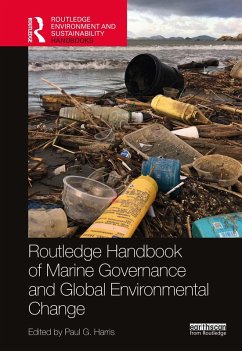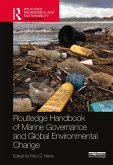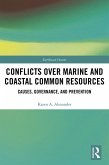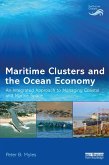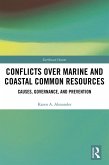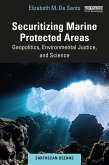Routledge Handbook of Marine Governance and Global Environmental Change (eBook, PDF)
Redaktion: Harris, Paul G.
46,95 €
46,95 €
inkl. MwSt.
Sofort per Download lieferbar

23 °P sammeln
46,95 €
Als Download kaufen

46,95 €
inkl. MwSt.
Sofort per Download lieferbar

23 °P sammeln
Jetzt verschenken
Alle Infos zum eBook verschenken
46,95 €
inkl. MwSt.
Sofort per Download lieferbar
Alle Infos zum eBook verschenken

23 °P sammeln
Routledge Handbook of Marine Governance and Global Environmental Change (eBook, PDF)
Redaktion: Harris, Paul G.
- Format: PDF
- Merkliste
- Auf die Merkliste
- Bewerten Bewerten
- Teilen
- Produkt teilen
- Produkterinnerung
- Produkterinnerung

Bitte loggen Sie sich zunächst in Ihr Kundenkonto ein oder registrieren Sie sich bei
bücher.de, um das eBook-Abo tolino select nutzen zu können.
Hier können Sie sich einloggen
Hier können Sie sich einloggen
Sie sind bereits eingeloggt. Klicken Sie auf 2. tolino select Abo, um fortzufahren.

Bitte loggen Sie sich zunächst in Ihr Kundenkonto ein oder registrieren Sie sich bei bücher.de, um das eBook-Abo tolino select nutzen zu können.
This comprehensive Handbook provides a detailed and unique overview of current thinking about marine governance in the context of global environmental change.
- Geräte: PC
- mit Kopierschutz
- eBook Hilfe
Andere Kunden interessierten sich auch für
![Routledge Handbook of Marine Governance and Global Environmental Change (eBook, ePUB) Routledge Handbook of Marine Governance and Global Environmental Change (eBook, ePUB)]() Routledge Handbook of Marine Governance and Global Environmental Change (eBook, ePUB)46,95 €
Routledge Handbook of Marine Governance and Global Environmental Change (eBook, ePUB)46,95 €![Conflicts over Marine and Coastal Common Resources (eBook, PDF) Conflicts over Marine and Coastal Common Resources (eBook, PDF)]() Karen A. AlexanderConflicts over Marine and Coastal Common Resources (eBook, PDF)43,95 €
Karen A. AlexanderConflicts over Marine and Coastal Common Resources (eBook, PDF)43,95 €![Maritime Clusters and the Ocean Economy (eBook, PDF) Maritime Clusters and the Ocean Economy (eBook, PDF)]() Peter B. MylesMaritime Clusters and the Ocean Economy (eBook, PDF)45,95 €
Peter B. MylesMaritime Clusters and the Ocean Economy (eBook, PDF)45,95 €![Conflicts over Marine and Coastal Common Resources (eBook, ePUB) Conflicts over Marine and Coastal Common Resources (eBook, ePUB)]() Karen A. AlexanderConflicts over Marine and Coastal Common Resources (eBook, ePUB)43,95 €
Karen A. AlexanderConflicts over Marine and Coastal Common Resources (eBook, ePUB)43,95 €![Securitizing Marine Protected Areas (eBook, PDF) Securitizing Marine Protected Areas (eBook, PDF)]() Elizabeth M. De SantoSecuritizing Marine Protected Areas (eBook, PDF)43,95 €
Elizabeth M. De SantoSecuritizing Marine Protected Areas (eBook, PDF)43,95 €![Routledge Handbook of Global Environmental Politics (eBook, PDF) Routledge Handbook of Global Environmental Politics (eBook, PDF)]() Routledge Handbook of Global Environmental Politics (eBook, PDF)47,95 €
Routledge Handbook of Global Environmental Politics (eBook, PDF)47,95 €![Routledge Handbook of Global Land and Resource Grabbing (eBook, PDF) Routledge Handbook of Global Land and Resource Grabbing (eBook, PDF)]() Routledge Handbook of Global Land and Resource Grabbing (eBook, PDF)0,00 €
Routledge Handbook of Global Land and Resource Grabbing (eBook, PDF)0,00 €-
-
-
This comprehensive Handbook provides a detailed and unique overview of current thinking about marine governance in the context of global environmental change.
Dieser Download kann aus rechtlichen Gründen nur mit Rechnungsadresse in A, B, BG, CY, CZ, D, DK, EW, E, FIN, F, GR, HR, H, IRL, I, LT, L, LR, M, NL, PL, P, R, S, SLO, SK ausgeliefert werden.
Produktdetails
- Produktdetails
- Verlag: Taylor & Francis eBooks
- Seitenzahl: 342
- Erscheinungstermin: 15. Juni 2022
- Englisch
- ISBN-13: 9781351369602
- Artikelnr.: 64096626
- Verlag: Taylor & Francis eBooks
- Seitenzahl: 342
- Erscheinungstermin: 15. Juni 2022
- Englisch
- ISBN-13: 9781351369602
- Artikelnr.: 64096626
- Herstellerkennzeichnung Die Herstellerinformationen sind derzeit nicht verfügbar.
Paul G. Harris is the Chair Professor of Global and Environmental Studies at the Education University of Hong Kong. He is the author of six books and editor of 20 volumes on climate change and global environmental politics, policy, and justice.
PART 1. Introduction 1. The growing challenge for marine governance: global environmental change PART 2. International law, regimes, and leadership in marine environmental governance 2. The global oceans regime: the law of the sea and beyond 3. The climate-oceans nexus: oceans in the climate regime, climate in the oceans regime 4. The legal implications of ocean acidification: beyond the climate change regime 5. Regimes for ocean management: regional seas programmes and blue-carbon habitats 6. Blue dimensions of the European Green Deal: climate action at sea 7. Leadership: actors and their strategies in marine environmental governance PART 3. Non-state actors in marine environmental governance 8. Experts: scientific knowledge for ocean protection 9. Civil society: nongovernmental organizations, public opinion, and individuals 10. Private governance: the case of Marine Stewardship Council certification in Russia 11. Private-sector investors: climate action and blue carbon financing PART 4. Governing marine environments and regions 12. Vulnerable nations and communities: accounting for those most dependent on the seas 13. Coastlines and nearshore habitats: interactive governance in an era of global environmental change 14. Islands: rising seas, vulnerable shorelines, and territorial integrity 15. Coral reefs: the case for social-ecological reflexivity 16. Fisheries and aquaculture in Southeast Asia: managing the impacts of climate change 17. The Baltic Sea and global environmental change: best-in-class governance? 18. Governance of the Black Sea: institutional arrangements for managing the impacts of global environmental change 19. Polar seas: governing extreme change in the Arctic and Southern Oceans 20. Oil pollution and black carbon in the Arctic: dynamic shipping governance in a rapidly warming region 21. The high seas: adapting to changes in pelagic ecosystems PART 5. Emerging issues in environmentally sustainable marine governance 22. Plastic pollution: the challenges of uncertainty and multiplicity in global marine governance 23. Maritime commerce and transport: the imperfect match between climate change and the International Maritime Organization 24. Global change and the development of sustainable floating cities: regulatory and legal implications 25. Oceans and seas for sustainable development: challenges of global environmental change for SDG14 26. Ethics, justice, and human rights: normative considerations in marine environmental change PART 6. Conclusion 27. Prospects for marine governance in the Anthropocene: portents from the climate regime
PART 1. Introduction 1. The growing challenge for marine governance: global environmental change PART 2. International law, regimes, and leadership in marine environmental governance 2. The global oceans regime: the law of the sea and beyond 3. The climate-oceans nexus: oceans in the climate regime, climate in the oceans regime 4. The legal implications of ocean acidification: beyond the climate change regime 5. Regimes for ocean management: regional seas programmes and blue-carbon habitats 6. Blue dimensions of the European Green Deal: climate action at sea 7. Leadership: actors and their strategies in marine environmental governance PART 3. Non-state actors in marine environmental governance 8. Experts: scientific knowledge for ocean protection 9. Civil society: nongovernmental organizations, public opinion, and individuals 10. Private governance: the case of Marine Stewardship Council certification in Russia 11. Private-sector investors: climate action and blue carbon financing PART 4. Governing marine environments and regions 12. Vulnerable nations and communities: accounting for those most dependent on the seas 13. Coastlines and nearshore habitats: interactive governance in an era of global environmental change 14. Islands: rising seas, vulnerable shorelines, and territorial integrity 15. Coral reefs: the case for social-ecological reflexivity 16. Fisheries and aquaculture in Southeast Asia: managing the impacts of climate change 17. The Baltic Sea and global environmental change: best-in-class governance? 18. Governance of the Black Sea: institutional arrangements for managing the impacts of global environmental change 19. Polar seas: governing extreme change in the Arctic and Southern Oceans 20. Oil pollution and black carbon in the Arctic: dynamic shipping governance in a rapidly warming region 21. The high seas: adapting to changes in pelagic ecosystems PART 5. Emerging issues in environmentally sustainable marine governance 22. Plastic pollution: the challenges of uncertainty and multiplicity in global marine governance 23. Maritime commerce and transport: the imperfect match between climate change and the International Maritime Organization 24. Global change and the development of sustainable floating cities: regulatory and legal implications 25. Oceans and seas for sustainable development: challenges of global environmental change for SDG14 26. Ethics, justice, and human rights: normative considerations in marine environmental change PART 6. Conclusion 27. Prospects for marine governance in the Anthropocene: portents from the climate regime
